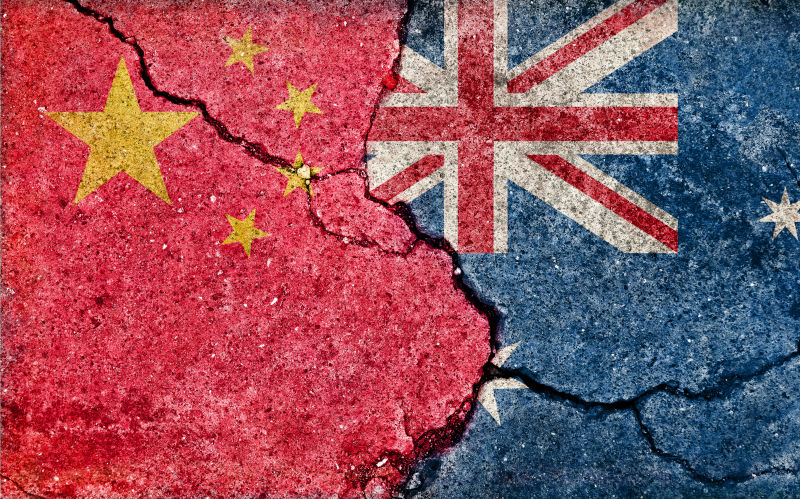The Defence Strategic Review: China is not a military threat
Sep 26, 2022
Australia’s defence policy is based on an assumed “China Threat”. If this assumption is maintained, it will be used to justify increased defence spending and a closer defence engagement with the United States and other “like-minded” countries, including Quad and AUKUS partners.
This submission proposes that China is not a military threat. It argues that the defence strategic review should be a multi-faceted review of our China policy, including diplomatic, cultural, and domestic affairs policies, and should aim for outcomes that will benefit the whole nation.
A genuine threat to Australia’s basic security interests would demand preparedness for war. Threats can be either military or non-military, but only a military threat will lead to war. Australia, like every other country, has problems and disputes with other countries, and economic difficulties and natural disasters that require humanitarian solutions. These non-military threats, even if defence forces are called in to help, should not be treated as military threats. I argue that there is no military threat from China.
Public opinion should not be the basis for a national defence strategy. Opinion surveys should be set aside when reviewing strategy, because they are based on emotive responses to particular situations and to how they are represented in the media, and not on hard facts. This applies to recent opinion surveys asking about attitudes to China. The rapid swing from positive to negative attitudes in just a few years does not verify a sudden change in the strategic environment but reflects media and opinion leaders that have a particular bias.
Over the last half century, China has assumed greater weight in the global economy than ever before and consequentially has increased impacted on the Australian economy and society. China’s GDP has risen steadily until it will soon by some measures be the largest economy in the world. Along with that economic growth, China has become a greater political and military power, and it is a relatively stable power. The rule of the Communist Party of China (CPC) is unchallenged and recognised around the world. Despite economic and social problems resulting from the Covid pandemic and natural disasters, few commentators predict the collapse of the central government in the foreseeable future. For the past 50 years, Australia has engaged with China diplomatically, economically and socially and has learned to get along with it. Practical engagement with China and other regional countries and trade partners is essential because we are in no way self-reliant. Australia needs stable and preferably friendly relations with other countries for economic and practical reasons.
I submit that our security policy should be multi-dimensional. Military, political, development assistance and exchange of people and ideas should all work together to shape the security environment. While the Indo-Pacific region is of immediate importance, we must also pursue developments outside the region that have indirect impact on us, including disarmament negotiations, avoidance of nuclear war and security in the Middle East. Cooperative relations with treaty partners are essential, but we cannot assume that the United States will retain its present level of activity in this part of the world. We have seen that in recent years the US has become less focussed on its global role and more preoccupied with its domestic economy.
China is under the authoritarian rule of President Xi Jinping, whose priorities include consolidation of power, national unity and economic development. The consequences of his policies include human rights abuses and restrictions on individual liberties that would not be acceptable in a western democracy. This is particularly evident in Xinjiang, Tibet, Inner Mongolia and Hong Kong. These regions are all integral parts of the Chinese nation. The situation there may be regrettable but does not constitute a threat to Australia.
China is accused of external aggression by western leaders and commentators. For instance, In Australia, Opposition Leader Peter Dutton has repeatedly referred to China as a threat to peace and stability. This view is shared by large sections of the media and the public, some of whom apparently think that China might invade Darwin or Sydney. A Lowy Institute poll in June 2022 found that 63 percent of those surveyed regarded China as a “security threat” not an “economic partner”.
The perception that China is unfriendly is not based on its increased spending on defence and military modernisation, but on its policies and actions in the South China Sea and the Taiwan Strait, which have been publicised widely in the local press. Journalists, however, only tell one side of the story. They do not mention that both China and Taiwan lay claim to large parts of the South China Sea, as do Vietnam, the Philippines and Malaysia, or that this claim is of long standing (although disputed), and some islands such as the Paracels have been occupied by Chinese forces for several decades since the Vietnam War. China claims sovereignty over Taiwan, and this claim is internationally unchallenged and has legal status, being registered with the United Nations. In these two respects, China’s policies and actions are not aggressively directed to Australia, although they do aim to limit United States standing and representation in the region, since the US is legally bound to defend Taiwan militarily in case of invasion. It follows therefore that if Australia were to be drawn into a military encounter with China because of its activities in the South China Sea or the Taiwan Strait, this would be because of real or perceived obligations to the US, not because of Chinese actions.
Foreign Minister Penny Wong has recently spoken about regional concerns over “the risk of conflict” over Taiwan. The maintenance of regional stability is indeed a reason to upgrade defence preparedness and to liaise with regional neighbours so as to coordinate responses.
We share a common interest in maintaining stability in the region. In order to prevent escalation of conflicts, we should maintain regular diplomatic communications with all concerned countries with a view to agreeing on principles and procedures to handle disputes and prevent any possible military confrontation.
A common accusation against China is of interference in Australian domestic affairs. One academic has called this a “silent invasion.” This is a gross exaggeration. It is hard to find examples of interference or attempts to influence government policies or decision-making. One exception occurred in 2017 when Labor Senator Sam Dastyari publicly contradicted Labor policy on the South China Sea and offered counter-surveillance advice to a Chinese donor. This attempt by China to influence government policy, if it was such, was ultimately unsuccessful because it was discovered and led to Dastyari’s resignation from Parliament.
China does energetically engage in soft power activities in Australia and around the world, seeking to win support for its policies and increase its circle of influence. In my studies of China’s cultural diplomacy and soft power I have concluded that, generally speaking, China has had limited effect. This point of view has been endorsed by American academic Joseph Nye, who began investigating the concept of soft power in the 1990s and who has observed that any nation, such as China, that over-promotes itself debases its influence on the public who conclude that its efforts are simply government propaganda.
President Xi Jinping’s policy objective of developing the Chinese economy does indeed lead to strategies that are framed as competition with the United States. Chinese government programs aim to attract leading scientists to work in China and seek to acquire cutting-edge technology from Japan and the West. Australia must be alert to possible industrial and academic theft and must have the best possible cyber security to protect our knowledge bases and intellectual property. These are valid security concerns.
When considering our security concerns involving relations with China, the position of Chinese Australians should be protected. They are a valuable and growing component of our multicultural society, but recently they have been the target of racist attacks and their loyalty has been called into question. Our multicultural policies should be reviewed and strengthened, particularly because President Xi Jinping appears to have moved away from previous Chinese government policies that urged overseas Chinese to take out citizenship of the countries in which they resided, thereby renouncing citizenship of the PRC. He has made several statements calling on ethnic Chinese around the world to rally to support the government of the PRC. There is no indication that these statements have influenced the Chinese Australian community, but the Australian government should develop and promote its own policy concerning the Chinese Australian community and other multicultural sectors of the population.
I write as a close observer of China over more than 50 years and as one who was formerly engaged in Australia-China diplomatic and commercial relations at a senior level. I argue that China should not be viewed as military threat, rather, that we should factor in China when developing many aspects of our domestic and international policy. We should engage with China in a positive way in as many areas as possible of non-military security policy, including foreign policy, economic policy, technology, environmental issues, human rights and development, in order to build a non-confrontational bilateral and multilateral relationship.
Read more in our Defence Strategic Review series of articles.




